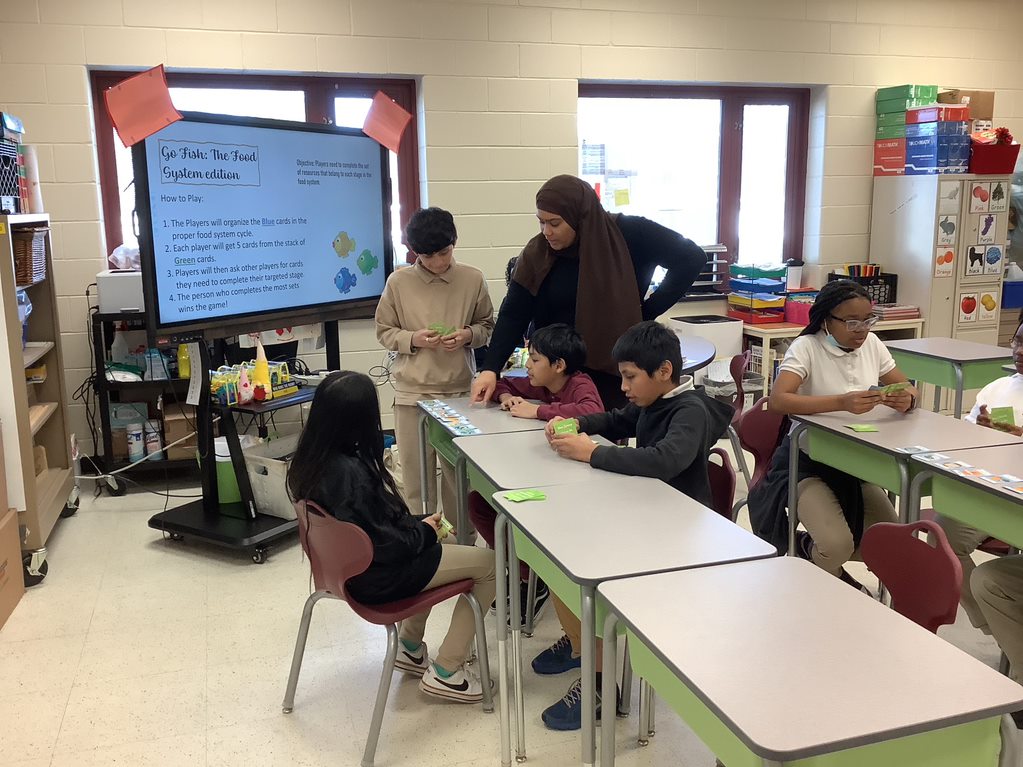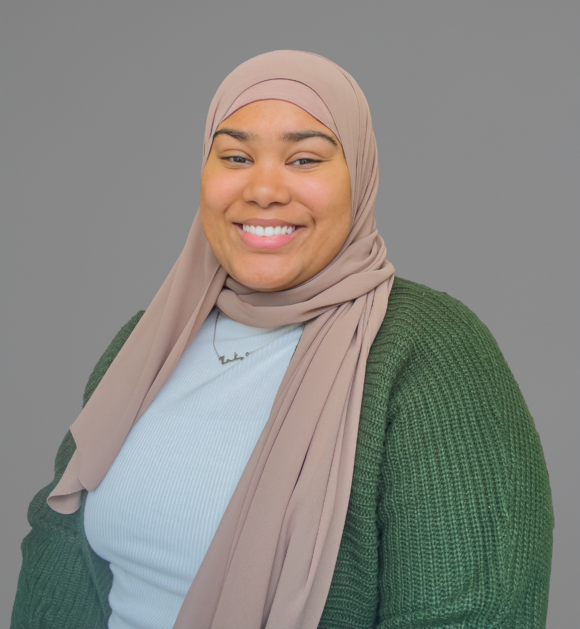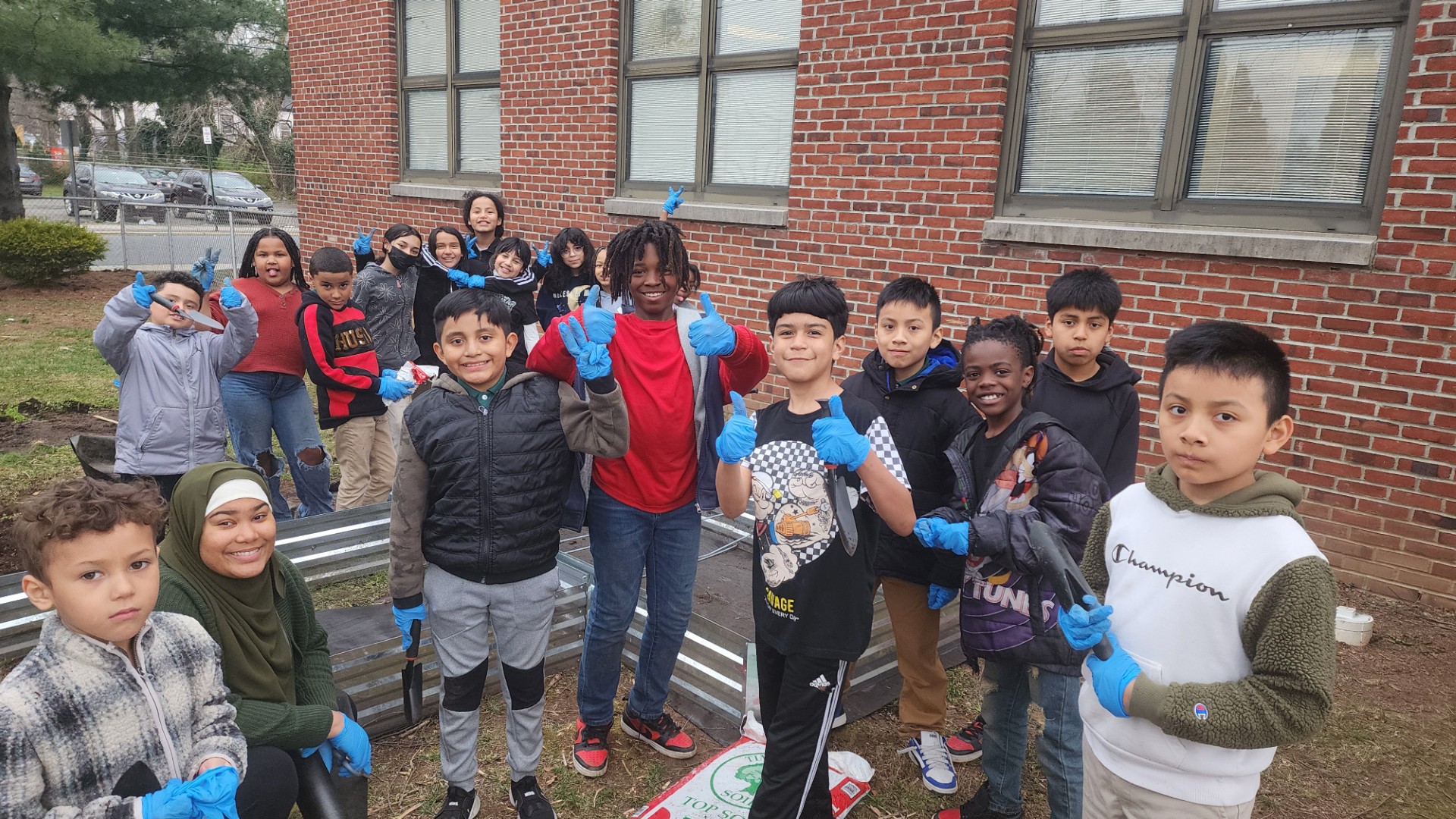
Students at Emerson Elementary Family Fun Center learn the resources needed for each stage of the food system. Courtesy of Almani Okuwobi.
Rutgers Cooperative Extension Food Waste Team has successfully partnered with New Jersey schools since 2018 to implement strategies that reduce the amount of food waste generated by school cafeterias. The Food Waste Team has also piloted curricula in schools that teach students the importance of reducing food waste.
In 2020, New Jersey became the first state in the nation to mandate climate change education for K-12 public schools. In response, the RCE Food Waste Team developed curricula for fifth grade students that address food waste and its effects on climate change. Food waste reduction practices were incorporated into the curricula and framed as a solution to climate change in the unit.
The Food Waste Team is led by educators in the Department of Family and Community Health Sciences (FCHS) and connects with AmeriCorps members to serve full-time in schools to implement climate change education and programming as part of the New Jersey Climate Change Corps.
Established in the 2023-2024 school year, the New Jersey Climate Change Corps aims to improve school administrations’ and fifth grade students’ knowledge, attitudes and behaviors toward adapting food waste reduction practices. Ultimately, the goal is to reduce the amount of food waste produced by the schools in which they work.

Almani Okuwobi, SAS’23, is part of the NJ Climate Change Corps. Photo courtesy of Almani Okuwobi.
Almani Okuwobi, a 2023 graduate of Rutgers School of Arts and Sciences with a bachelor’s degree in Evolutionary Anthropology, is an AmeriCorps member serving as part of the New Jersey Climate Change Corps program in the Plainfield Public Schools.
How long have you been working as a service member in affiliation with the NJ School Climate Change Corps?
“I joined Americorps in September 2023, so I am almost one year into the Climate Change initiative run by the New Jersey Climate Change Corps.”
Have you had previous experience working with kids?
“I have never worked with kids before, especially in a classroom setting. However, I have known for some time that I wanted to pursue a career in education. The Climate Change Initiative focuses on children in the age range of 10-11 (5th grade). These are coincidently the children who fell subject to online schooling during the pandemic.”
How have you found the process teaching the climate change curriculum to youths at this grade level?
“In looking at the curriculum that the Climate Change Corps compiled, I felt it was a little advanced for them, at times. When I began teaching the introductory lesson on greenhouse gases and climate change, we went over systems/cycles. My immediate thought was to share about the water cycle, seeing as I remembered learning it in the 4th grade and figured they had already learned it. I was mistaken, so I got a lot of confused faces and raised eyebrows from the kids.”

The Garden Club at Charles H. Stillman Elementary School helped to expand the pre-existing garden. Courtesy of Almani Okuwobi.
What adjustments did you have to make to meet the goals of the curriculum and ensure the students received the intended lessons around climate change?
“I realized that I would have to adapt some of the material by expanding on the background/foundation of the lesson topics. This included lots of examples and analogies to ensure they understood the foundation before I moved on to the lesson material. What I thought would be one lesson per class day turned into one lesson per week, sometimes more.”
How would you describe your experience working with and motivating the youth on these initiatives?
“In spite of the adjustments that had to be made, the children are more than eager to learn new things. I am constantly being asked, the moment I step out of my car to get into the building, “Ms. O, what are we going to learn today? Correct me if I’m wrong, but I don’t think kids who are not excited and interested in this initiative would constantly ask that question if they weren’t genuinely interested.”

